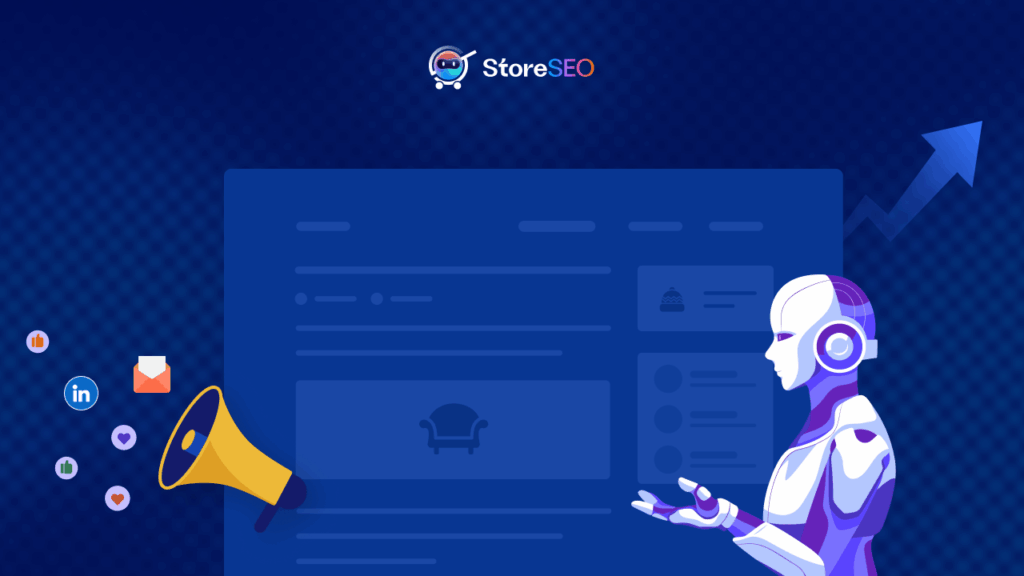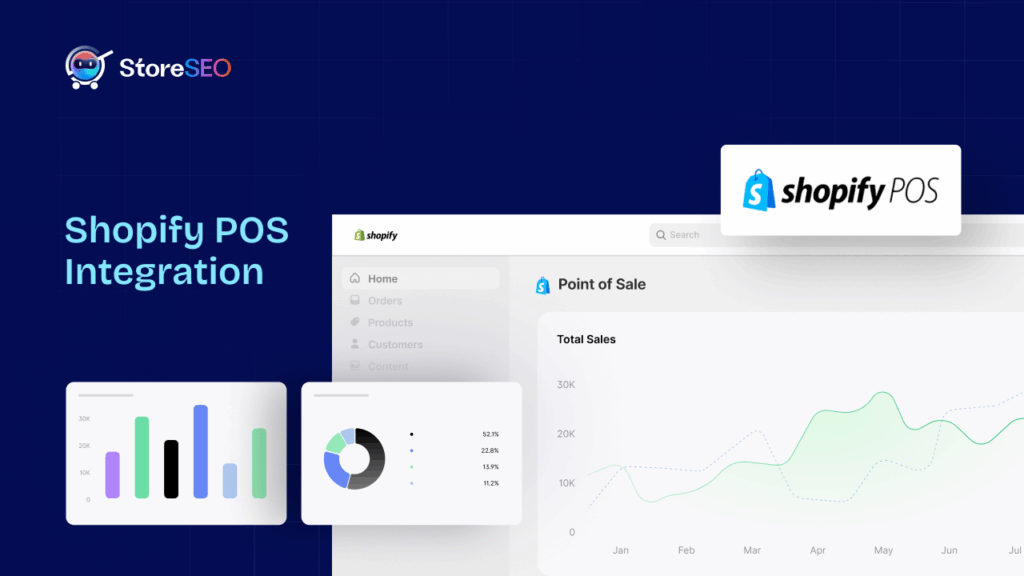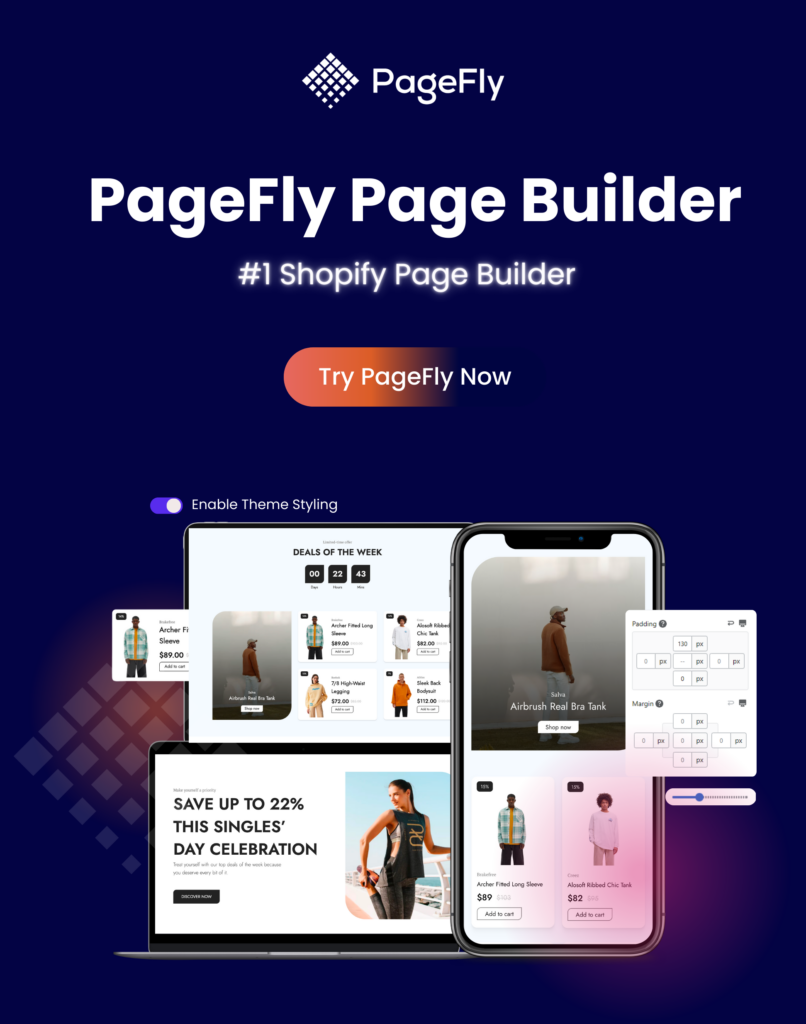Off page SEO is a critical component of Shopify store success. While on-page SEO optimizes your website, off-page strategies like backlinks build your site’s authority and credibility in the eyes of search engines. This guide will walk you through proven methods to build high-quality backlinks for Shopify store, helping you outrank competitors and drive organic traffic.

Why Backlinks Matter for Shopify Stores
Backlinks are crucial for Shopify stores because they play a significant role in improving the store’s visibility and credibility on search engines. When other websites link to your Shopify store, it signals to search engines that your content or products are valuable and trustworthy. This endorsement can lead to higher rankings in search results, making it easier for potential customers to find your store.
Increase Domain Authority
Backlinks from reputable websites help establish your Shopify store as an authority in your niche. When multiple high-quality sites reference your content, it signals to search engines that your store offers valuable insights or products. This can boost your domain authority, a key factor in determining your search engine rankings.
Enhance Discoverability
Each backlink acts as a gateway for new customers to discover your store. When high-traffic websites link to your Shopify store, it increases the chances of attracting potential customers who may not have found you otherwise. This can lead to more traffic and, ultimately, more sales.

Improve SEO Rankings
High-quality backlinks can significantly improve your store’s position in search engine results pages (SERPs). Higher rankings mean more visibility, which can lead to increased organic traffic. For eCommerce stores, this is particularly important as higher rankings often translate to more sales and revenue.
Drive Referral Traffic
Backlinks not only improve your search engine rankings but also drive direct traffic to your store. When users click on a link from another website, they are directed straight to your Shopify store. This can increase your site’s traffic and enhance brand awareness, drawing in a broader audience organically.
Establish Credibility
Backlinks from reputable sources can establish your Shopify store as a credible and trustworthy entity in your industry. When well-respected websites link to your content, it builds confidence among potential customers, making them more likely to purchase from your store.
Types of Backlinks for Shopify
There are different types of backlinks, each with its own benefits and strategies for acquisition. Here is a detailed explanation of the types of backlinks you can focus on for your Shopify store.
Editorial Backlinks
Editorial backlinks are links that other websites give to your content because they find it genuinely valuable, informative, or relevant. These links are typically embedded within the body of an article or blog post, often as a citation or reference to support a point being made. They are considered “editorial” because the decision to link to your content is made by the website’s editorial team or content creators, who see your content as a credible and authoritative source.
Earned media refers to any exposure or mentions your brand or content receives through organic means, without directly paying for it. While editorial backlinks are a subset of earned media, not all earned media results in backlinks. For instance, if a popular influencer talks about your product on their podcast but doesn’t link to your website, that’s still earned media, but it wouldn’t count as an editorial backlink.
Guest Blogging Backlinks
Guest blogging involves writing articles or posts for other websites in your niche. When you contribute valuable content to these sites, you can include links back to your Shopify store. This not only helps you build backlinks but also exposes your brand to a new audience. It is important to choose reputable websites with a good domain authority to ensure the backlinks are effective.
Business Profile Backlinks
Creating profiles on business listing sites like Google Business Profile, Yelp, or industry directories can also generate backlinks. These profiles often allow you to include a link to your Shopify store. Search engines view these profiles as evidence of your business’s credibility and longevity, which can positively impact your SEO.
Guest Post Bio Links
Even if a website does not allow backlinks within the main article, they often permit links in the author bio section. While these links may not be as powerful as editorial backlinks, they still contribute to your SEO efforts. Guest post bio links are particularly useful when you write for websites with high traffic, as they can drive referral traffic to your store.
Link Insertions
Link insertions involve finding existing content on other websites that is relevant to your business and politely asking the site owner to include a link to your Shopify store. This method often requires compensation, but it can be an effective way to build backlinks quickly. The key is to ensure the content is relevant and the anchor text is natural.
Broken Link Building
Broken link building is a strategy where you identify broken links on other websites and suggest replacing them with links to your Shopify store. This method involves finding high-authority websites with resource pages, checking for broken links, and contacting the webmaster to propose your link as a replacement. It is a win-win situation because you help the website fix a broken link while gaining a valuable backlink.
Influencer and Blogger Reviews
Reaching out to influencers and bloggers in your niche to review your products can also generate backlinks. When they write about your products, they often include a link to your Shopify store. This method not only builds backlinks but also increases brand awareness and credibility among their audience.
Manufacturer Links
If you sell products from specific brands, you can ask the manufacturers to list your Shopify store on their website. Many manufacturers have directories of online retailers, and being listed there can provide you with a valuable backlink. This is a relatively simple strategy that can yield good results.
8 Strategies to Build Backlinks For Shopify Store
By following these step-by-step strategies, you can effectively build backlinks for your Shopify store. Remember, the key is to focus on quality over quantity.
1. Understand the Importance of Quality Backlinks
Search engines like Google prioritize websites with trustworthy and relevant backlinks. This means you should focus on getting links from websites that are related to your niche or industry.
For example, if you sell eco-friendly products, try to get backlinks from blogs or websites that focus on sustainability or green living. These types of links will not only improve your SEO but also attract visitors who are genuinely interested in your products.
2. Create High-Quality Content
One of the best ways to earn backlinks is by creating content that others want to link to. This could be blog posts, guides, infographics, or videos that provide value to your audience. When people find your content useful or interesting, they are more likely to share it or reference it on their own websites.

For instance, if you run a Shopify store selling fitness equipment, you could write a detailed guide on “The Best Home Workouts for Beginners.” If the content is well-researched and helpful, fitness bloggers or health websites may link to it, giving you valuable backlinks.
3. Reach Out to Influencers and Bloggers
Another effective strategy is to collaborate with influencers or bloggers in your niche. These individuals often have large audiences and established websites. By reaching out to them and offering collaboration opportunities, you can gain backlinks to your store.
You can send personalized emails explaining why your audience might benefit from your products or content. For example, if you sell handmade jewelry, you could reach out to fashion bloggers and offer them a free piece of jewelry in exchange for a review or mention on their website. If they include a link to your store in their post, it becomes a valuable backlink.
4. Guest Posting on Relevant Websites
Guest posting is another powerful way to build backlinks. Many websites allow guest authors to contribute articles or blog posts. In return, you can include a link back to your Shopify store in your author bio or within the content itself.
To succeed with guest posting, start by identifying websites in your niche that accept guest contributions. Then, pitch ideas for articles that align with their audience’s interests. Make sure your content is well-written and provides real value. Remember, the goal is not just to place a link but to create something that readers will enjoy and share.
6. Use Broken Link Building Techniques
Broken link building is a technique where you find broken links on other websites and suggest your content as a replacement. To do this, you need to identify pages on other websites that have dead links pointing to missing or unavailable resources. Once you find these broken links, you can contact the website owner and recommend your content as an alternative.
For example, if a blog post about healthy eating links to a recipe website that no longer exists, you could offer your own recipe page as a replacement. If the website owner agrees, they will update the link to point to your content, giving you a new backlink.
6. Implement User-Generated Content
Encouraging customers to create content about your products is another great way to build backlinks. When satisfied customers write reviews, create videos, or post photos of your products, they may naturally link back to your store. You can incentivize this behavior by offering discounts, giveaways, or featuring customer stories on your website.
For example, if a customer writes a blog post about how much they love your skincare products and links to your store, that becomes a valuable backlink. Additionally, sharing user-generated content on your social media channels can further amplify its reach.
7. Monitor Your Backlink Profile
Finally, it is important to monitor your backlink profile regularly. This means keeping track of which websites are linking to yours and ensuring those links are helping rather than harming your SEO. Tools like Google Search Console, Ahrefs, or SEMrush can help you analyze your backlinks.
If you notice any spammy or irrelevant links pointing to your store, you can disavow them using Google’s Disavow Tool. This ensures that low-quality links do not negatively impact your search engine rankings.
8. Create Affiliate Programs
Launch an affiliate program for your Shopify store using apps that are offering commissions to affiliates who promote your products. Affiliates often include backlinks to your store in their promotional content, such as blogs or social media posts, which can boost SEO and drive traffic. Provide them with marketing materials like banners and pre-written content to make linking to your store effortless while tracking performance through the affiliate platform.
Tools for Backlink Building in Your Shopify Store
Building backlinks for your Shopify store can be streamlined with tools like HARO, which connects you with journalists for expert sourcing opportunities, and link-building marketplaces like Linkhouse, offering quick access to diverse backlinks.
Broken link checkers like Check My Links help you identify and replace broken links, while guest posting platforms such as Accessily simplify finding blogs for content contributions. Use content creation tools like Grammarly and Canva.

While these tools ensure polished, shareable content, outreach tools like Hunter and Mailshake make email campaigns efficient. SEO tools like Ahrefs and SEMrush provide insights into your backlink profile and competitor strategies, helping you focus on effective and targeted efforts to grow your store.
Common Mistakes to Avoid Backlink Building for Shopify Store
One mistake many people make is focusing too much on the number of backlinks rather than their quality. It is better to have fewer high-quality backlinks from reputable sites than many low-quality ones. Search engines prioritize quality over quantity when evaluating backlinks. This means you should aim for links from websites that are trusted and relevant to your niche.
Another issue to watch out for is neglecting relevance. A tourism website, for example, would benefit more from backlinks coming from travel blogs or related industries rather than unrelated fields. Ignoring link relevancy can harm your SEO efforts since search engines consider whether the linking site has any connection to your own content
Buying links is another pitfall to steer clear of. While it might seem like an easy way to get backlinks quickly, purchasing them can lead to penalties from search engines. These platforms actively discourage this practice and may penalize websites found engaging in such activities
Instead, focus on creating valuable content that others naturally want to link to.
Overusing exact match anchor text is yet another error. Anchor text refers to the clickable part of a hyperlink. Using the same phrase repeatedly as anchor text can appear unnatural and suspicious to search engines. Diversifying your anchor texts helps maintain a natural link profile.
Building backlinks for your Shopify store is a long-term strategy that requires consistency and effort. By creating high-quality content, leveraging guest blogging, and collaborating with influencers, you can establish a strong backlink profile that boosts your SEO and helps you outrank competitors. Start implementing these strategies today to see measurable results in your Shopify store’s performance.
Have you found our blog useful? If you do, please subscribe to our blog for more tips, tutorials, and updates on industry-related topics.








